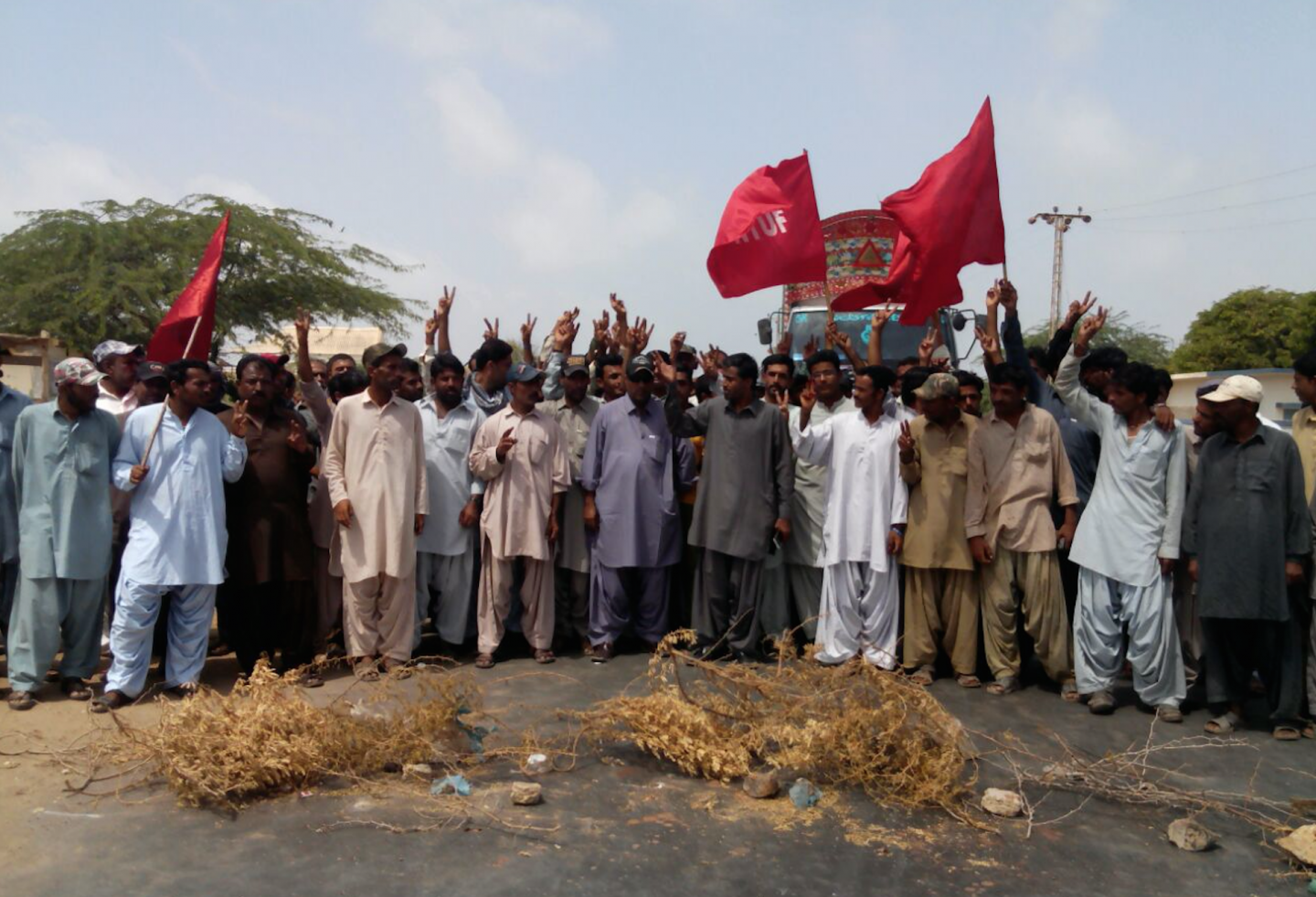25 May, 2016Around 350 shipbreaking workers have been reinstated with wages after a two-day strike led by IndustriALL Pakistani affiliate NTUF. Workers are continuing to demand that the government and employers ensure basic facilities at the country's dangerous shipbreaking yards.
About 360 shipbreaking workers were sacked on 16 May, in retaliation for filing police cases against employers regarding injury and deaths at shipbreaking yards in Pakistan.
The workers were employed through contractors to perform specific tasks, locally known as ‘agreed sector’ workers. Subsequent to two days strike, the shipbreaking owners association came to the negotiation table. Successful negotiation on 24th May led to reinstatement of all workers with wages for the days they were away from work.
While the victory is a success, the perilous working conditions at shipbreaking yards demonstrate the enormous challenges workers face.
In March, Muhammad Asif, a 28-year old ship breaker, died at work as a workstation caught fire. Another young worker Shahid Khan, 22 died on the spot when a heavy iron plate fell over him in May 2016. In March, five workers were seriously injured. In two separate accidents in April, Imran, 25, lost his leg, and Muhammad Shafiq, 38, suffered rib injury as he fell from a height. Hidayatullah, 22, lost his leg as a gas cylinder exploded.
At a press conference at Karachi in May, shipbreaking workers’ representatives highlighted the dangerous and deplorable working conditions faced by the more than 15,000 workers in the industry in Pakistan.
Workers do not have access to clean drinking water and rest rooms. Almost all of them work without a formal contract, get meager wages, are forced to work overtime and have no access to government sponsored social security provisions. They are recruited through contractors, locally known as ‘jamaadars’, with scant regard for labour laws.
All stages of breaking ships are very dangerous, involving x-ray welding, gas cutting, handling chemical substances, removal of asbestos, shifting of iron and steel sheets and discharge of poisonous gases. However workers undertake these tasks without any training and safety equipment.
And even though it is a highly accident-prone industry, there is no hospital at the Gadani shipbreaking yard that could provide basic and emergency medical care to workers. The lack of ambulance facility for immediate transport in the event of accidents, is a major cause of concern. Workers and their families live in makeshift huts in groups with no facility of electricity and water. There is no school for the children.
Kan Matsuzaki, IndustriALL’s shipbuilding and shipbreaking director, says that:
IndustriALL are outraged over the number of accidents. In terms of working conditions and health and safety, Gadani is probably the worst shipbreaking yard in South Asia.
The Pakistan government and the employers must take immediate steps to address the workers’ demands.
Workers called upon the government of Pakistan to immediately announce a shipbreaking policy in consultation with workers’ representatives. The policy should reflect the Hong Kong International Convention for the Safe and Environmentally Sound Recycling of Ships and Basel Convention on the Control of Transboundary Movements of Hazardous Wastes.
Further demands include:
- Clean drinking water and hygienic food
- Training to handle hazardous substances
- Safety at work and access to dispensary and ambulance facilities at every shipbreaking plot
- Protection by the labour department of workers’ legal right to form unions and elect collective bargaining agents
- 100 per cent wage increase
- Provisions for institutional social security
- Payment of appropriate compensation to family members of workers who have lost their life
- Continued medical support to injured at work
- That employers should adhere to the Supreme Court of Pakistan’s order to abolish all kinds of contract labor
